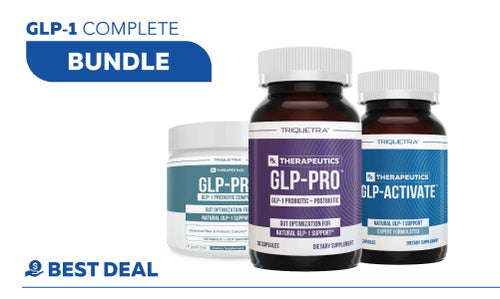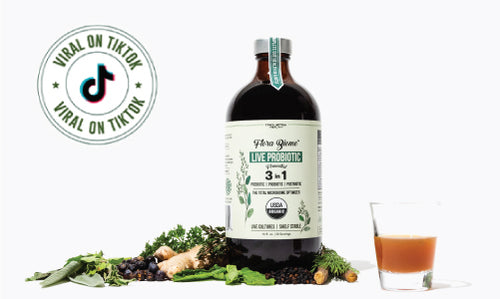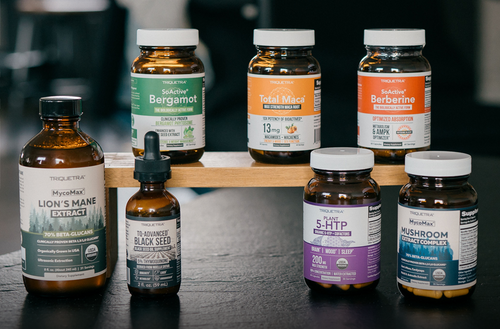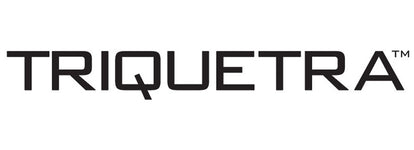
What is Vitamin D?
Vitamin D is one of the only Vitamins that our bodies naturally produce. During sun exposure, the ultraviolet rays are absorbed in our skin, which eventually metabolizes into our liver, kidneys, and small intestines to create Vitamin D. Vitamin D is essential for our bone, heart, immune health, and overall mood. It is common to find that people that live in areas that experience harsh winters or a populous city are Vitamin D deficient. Vegans and people that do not eat dairy are also at risk of being Vitamin D deficient.
** Check out our article on “How To Tell If You Are Vitamin D Deficient”

Why is Vitamin D essential for your health?
With an estimated 1 billion people worldwide being Vitamin D deficient, Triquetra Health understands the importance of Vitamin D in everyone's diet. No matter the age, Vitamin D is essential for your health. Infants and toddlers that are Vitamin D deficient are at risk of developing rickets, affecting bone health and development. The elderly are at risk of falling or easily breaking bones, and everyone in between is at risk of feeling depressed, tired, having a weakened immune system, and hair loss.

Vitamin D2 vs. D3?
There are two primary forms of Vitamin D: Vitamin D2 and Vitamin D3. Vitamin D3 is what we receive from sunlight and naturally produce in our body, so it is easy to break down and absorb.
Vitamin D2 is what we receive from the foods we eat. Fish, oranges, and dairy contain Vitamin D2. Still, it is challenging to consume enough Vitamin D2 from our food alone or get sufficient sunlight, so it is essential to supplement with a vitamin. A person would need to eat 5 ounces of salmon, 7 ounces of halibut, two 8-ounce cans of tuna, or a quart of milk to get 400 IU of Vitamin D2, which is only about half of what many experts recommend.
Many experts argue that Vitamin D3 is easier for the body to break down because it is the form of Vitamin D that our body naturally creates, while others say that both forms are beneficial. The main point is that you know the amount of Vitamin D you are taking in and supplement when needed.
How to supplement Vitamin D?
Let's be honest, how many of us are drinking two quarts of milk or eating 10 ounces of salmon daily? I would assume not many. This is why many of us need to supplement our diet with other forms of Vitamin D. There are many brands selling Vitamin D, but they are not all created equally. Many Vitamin D forms are not vegan or ethically produced because they are made from Lanolin (a waxy substance in sheep's wool) or fish oil, and even fewer are in liquid form. Studies have shown sublingual D3 taken under the tongue has a 197% higher absorption rate than Vitamin D3 capsules. Liquid form also makes it easy to adjust dosage for the entire family.
Health Cares rated Triquetra Health's Plant D3 the top liquid Vitamin D supplement and one of the overall top Vitamin D supplements on the market because it is a truly organic and plant-based form of Vitamin D3. The D3 is derived from a species of sun-grown algae. The algae produce D3, similar to how the human body produces D3 when exposed to the sun. It is D3 how nature has intended. It is also a highly versatile D3 because the drops allow for easy-to-adjust dose sizes.
No matter how you decided to get your Vitamin D, you must get what you need for your body. We strive to find the most up-to-date studies on health and discover the best products in nature because we want you and your family to be the healthiest and happiest forms of yourself and hope to make it a little easier for you to get your essential intake of Vitamin D3.










